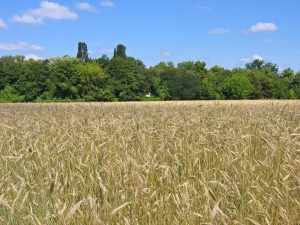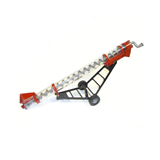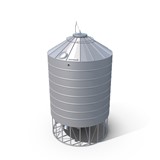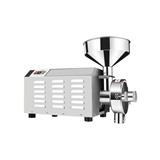The agricultural industry in Australia has been through some rough times. Not only has it had to tackle severe weather conditions, but it has also had to contend with political issues such as live animal exports.
There is a reason for some optimism, though.
Henk de Graaf, managing director at Industrial Automation Group, said the grain industry is looking a lot better.
"The recent floods on the east coast and the recent rain on the west coast have created sufficient moisture in the ground for farmers to look very optimistic towards the coming harvest," he said.
"The last year has been a recovery period for a lot of grain farmers. Apart from those who lost a good crop due to flooding, in general, it was a relatively good year last year."
For the cattle industry, though, the outlook isn’t so rosy. On June 8 this year the Federal Government announced a halt of live cattle exports to Indonesia after the ABC program Four Corners reported on abuses to cattle in abattoirs in the country.
De Graaf said the effect was disastrous for farmers for several reasons, such as cattle which was due to be exported filtering through to the Australian market, which has an impact on pricing.
One month later on July 6 the government lifted the ban. However, the effects may last much longer.
"The worst thing that could happen is Indonesians start to look for meat somewhere else with suppliers who are not as concerned about animal health as we are in Australia," de Graaf said.
"You’ve got to be realistic in the market. You can’t just assume Australia is the only country where Indonesians can get their meat from.
"The way in which Australia has treated Indonesia means other countries around the world will be wary about committing themselves to Australian imports if that sort of situation can occur again."
The ban compounded issues in the dairy industry, such as processes not being followed in WA and the cost of milk being pushed down, according to de Graaf. The culmination of these issues could have a long-term effect on the viability of dairy farms.
There will be several other factors holding the agricultural industry back. According to Patrick Ellis, manager at Dooen Engineering Services, the strong Australian dollar is making import options lucrative.
"With the dollar being so high, then it’s almost impossible for us to compete. I’d like to see some serious tariffs on imported goods into Australia. They certainly do it in other countries – I don’t know why they don’t do it here," Ellis said.
However, a tax on imports is not likely to happen anytime soon, he said.
"I honestly don’t know what the saving grace is going to be for manufacturing in Australia. I can see it disappearing altogether," Ellis told IndustrySearch.
Although the strong dollar can be a hindrance, de Graaf said the grain industry could be boosted by investing in facilities to store grain on farms. Doing so would give them the opportunity to do more with their grain than just shipping it to the nearest bulk store.
"But that will shift the whole emphasis from just growing grain to actually handling grain and being more involved in the complete supply chain than traditionally has been the case," de Graaf said.
"It will take some time for farms to get used to it, but the opportunities are certainly there for farmers to be much more responsive to what other markets are wanting – specialty grains."
As the world battles with a growing population and food shortages, de Graaf believes grain prices will only increase as demand for food grows. He said if farmers in countries in south east Asia begin storing grains, they will double their production.
For Australian farmers to compete on this world stage and to capitalise on grain storage farmers will need to financially invest in the facilities and streamline efficiencies on the farm.
"For farmers to be more efficient in their use of energy in anything they do, whether it be from shifting the grain from one silo to another or whether it be using fans to aerate the grain storage, that can all be done a lot more efficiently," de Graaf said.
"Adopting new technology to be better in a position to control that could save farmers in energy up to 20 per cent very quickly."










